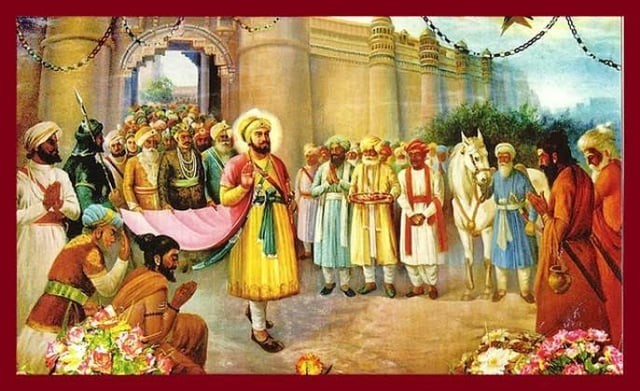Chess, Morris, and More: Fun Games for Developing Analytical Skills
In the journey of raising children, one of the most enriching experiences is witnessing their growth and development. As parents, we constantly seek ways to nurture their skills, encourage their curiosity, and foster their cognitive abilities. Amidst this endeavor, the role of games cannot be overstated.
Games offer more than just entertainment; they provide a platform for learning, exploration, and skill development. In this article, we delve into the significance of games, particularly those aimed at enhancing analytical skills such as chess, Nine Men’s Morris, and a myriad of others.
Chess: The Classic Game of Strategy
Chess, often hailed as the “game of kings,” transcends its status as a mere pastime to become a powerful tool for intellectual development. At its core, chess is a game of strategy and foresight, where players must anticipate their opponent’s moves while formulating their own. This intricate dance of tactics and counter-tactics not only sharpens analytical skills but also cultivates patience and perseverance in the face of challenges.
The benefits of introducing children to chess extend far beyond the realm of the game board. Research has shown that regular engagement with chess can lead to notable improvements in cognitive abilities. According to a study published in the journal Psychological Science, children who play chess exhibit enhanced problem-solving skills, better planning abilities, and a heightened capacity for foresight (Ferguson, 2007).
Introducing Chess to Children
Introducing chess to children need not be an intimidating task. On the contrary, it can be a delightful journey of discovery and exploration. Begin by acquainting them with the basic rules and movements of the chess pieces, allowing them to grasp the fundamentals at their own pace.
As they become more comfortable with the game, encourage them to experiment with different strategies and approaches, fostering a sense of creativity and innovation.
To make chess truly enjoyable for children, incorporate elements of fun and excitement into your gameplay sessions. Consider organizing friendly tournaments or chess-themed challenges that pique their interest and keep them engaged. If you infuse the game with a sense of playfulness, you will also transform it into a captivating adventure that sparks their imagination and fuels their passion for learning.
Nine Men’s Morris: A Strategic Board Game
Men’s Morris stands out as a timeless classic that offers a wealth of cognitive benefits for players of all ages. Originating from ancient civilizations, Morris is a game of skill and strategy that challenges players to outmaneuver their opponents through clever moves and tactical foresight.
At its essence, Morris is a game of alignment, where players aim to form rows of three of their own pieces while simultaneously blocking their opponent’s attempts to do the same. This seemingly simple objective belies the game’s depth and complexity, as players must anticipate their opponent’s moves while devising their own strategies for victory.
One of the key benefits of playing Morris lies in its ability to enhance critical thinking and problem-solving skills. As players seek to outwit their opponents and create favorable alignments, they engage in a process of strategic planning and analysis. This mental exercise fosters cognitive agility and flexibility, as players learn to adapt their strategies in response to changing circumstances on the board.
Moreover, Morris also promotes pattern recognition, as players seek to identify recurring formations and exploit them to their advantage. By honing their ability to discern patterns and anticipate their opponent’s moves, players develop a heightened sense of spatial awareness and strategic acumen.
Introducing Nine Men’s Morris to Children
To introduce Morris to children, begin by familiarizing them with the basic rules and objectives of the game. Encourage them to experiment with different tactics and approaches, allowing them to discover the intricacies of the game at their own pace. As they gain confidence and proficiency, consider incorporating Morris into your family game nights, providing an opportunity for enjoyable bonding experiences while simultaneously sharpening their analytical skills.
When you integrate Morris into your family’s repertoire of games, you not only offer children a delightful pastime but also provide them with a valuable educational tool for enhancing their cognitive abilities and fostering a lifelong love for strategic thinking.
Beyond the Board: Other Analytical Games
While chess and Morris are undeniably valuable for developing analytical skills, there exists a plethora of other games and activities that offer similar cognitive benefits. From Sudoku and Rubik’s Cube to logic puzzles and brainteasers, these games provide children with engaging challenges that stimulate their minds and foster critical thinking.
Sudoku: This number-based puzzle game requires players to fill a grid with digits so that each column, row, and sub grid contains all of the digits from 1 to 9. By strategically placing numbers and deducing patterns, children develop logical reasoning skills and numerical fluency.
Rubik’s Cube: As a three-dimensional puzzle, the Rubik’s Cube challenges players to manipulate its colored squares until each side displays a single, solid color. Solving the Rubik’s Cube necessitates spatial reasoning, problem-solving, and perseverance, making it an excellent tool for honing analytical skills.
Logic Puzzles: From crossword puzzles to riddles and lateral thinking puzzles, logic-based games encourage children to think critically and creatively. By unraveling clues and deducing solutions, players enhance their deductive reasoning and cognitive flexibility.
Each of these games offers a unique set of challenges and benefits, contributing to children’s cognitive development in diverse ways. By introducing a variety of analytical games into their repertoire, parents can provide children with a rich and stimulating environment for learning and growth.







